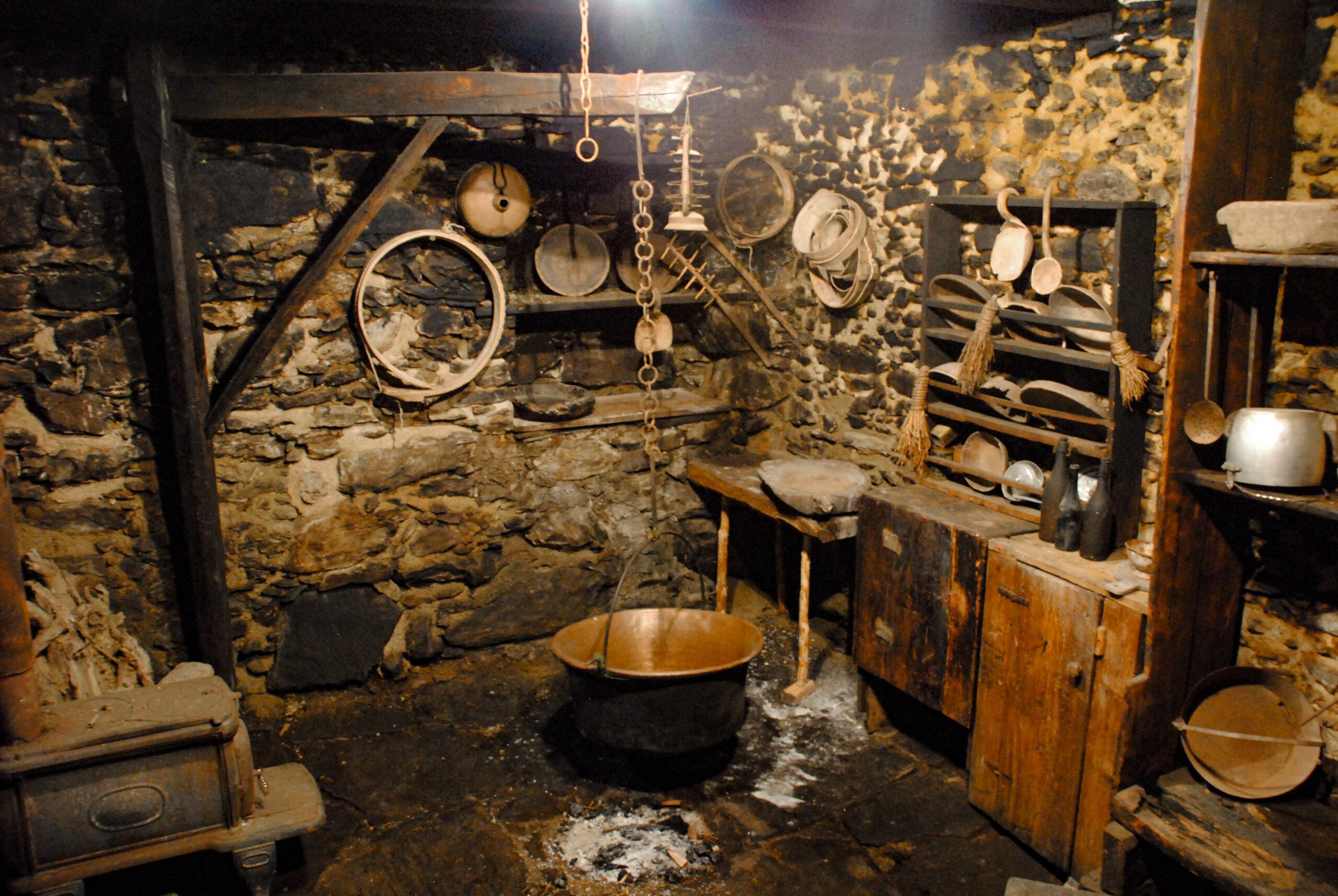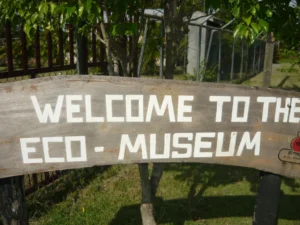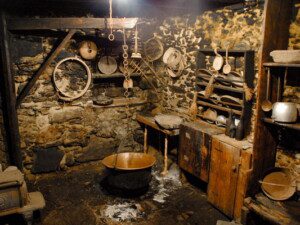Archivist: Reference scheme

Scheme B) Profession not regulated but built with (non-binding) regulatory references
The reference scheme is based on the 'modelSkills Cycle' and is in line with the 'Tourism, Arts, Heritage Competence Framework (TAH-CF)'. the TAH-CF is defined in accordance with the European Qualifications Framework (EQF), the Recommendation of the European Parliament and of the Council 2009/C 155/02 (ECVET) and the APNR (Non-Regulated Professional Activities) scheme adopted by UNI for the technical standardization of unregulated professions.”
Description
PPC5: Archivist (VI-VII-VIII EQF Level)
The archivist carries out a professional activity "targeted at govern the documentary complexes throughout their existence, as well as promote and facilitate their use. […] More generally, the archivist works for the satisfaction of cultural, information or management needs of the various subjects, individuals or public or private bodies, groups of users or the community in a broad sense, in compliance with the relevant ethical standards." (UNI 11536:2014, par. 4.1)
The archivist carries out identification, knowledge, protection, management, valorisation, promotion, research and training activities relating to archival assets.
It is a profession of high intellectual content and considerable complexity, which takes place both in the employ of MiBAC institutes or public and private bodies, and in the forms that characterize self-employment. It requires specific cultural, scientific, methodological, technical and ethical training, obtained through educational, training and refresher courses of a theoretical and practical nature. The profession of archivist is governed by the International Code of Ethics for Archivists, approved in Beijing on 6 September 1996 by the General Assembly of the International Council of Archives.
Standards of Reference
- European Qualification Framework (EQF)
- Recommendation 2009 / C 155/02 (European Credit System for Vocational Education and Training - ECVET)
- Law 4/2013 relating to non-regulated professions
- Ministerial Decree 244 of 20/05/2019 of the MIBACT - annex 3
- UNI 11536
Specific tasks and activities (from Ministerial Decree 244 of 20/05/2019)
The fundamental duties of the Archivist are:
- A Manage the archives (The set of activities aimed at organizing and administering the archives, understood as documentary complexes, in the cycle of their existence, from planning and training to conservation and sedimentation)
- B Communicating the archives (The set of activities through which the archivist, establishing an effective relationship with the public, makes information available to the public on the archival heritage capable of allowing the setting up of research and finding relevant reports and documents .)
- C Teaching and carrying out scientific training (Activities aimed at developing, through specific and appropriate educational paths, skills in terms of archive analysis, intervention and research capacity).
- D Direct and administer (Complex of activities necessary to define and develop the cultural and management strategies of institutes or other types of archival structures and the related programs prepared for their achievement).
For the activities, please refer to Annex 3 of Ministerial Decree 244 ANNEX-3-ARCHIVIST
Profile Evaluation Criteria
To certify the possession of skills, it is proposed to take into consideration methodologies that take into account the following aspects in a non-mutually exclusive manner, i.e. possibly in combination with each other:
- Qualifications awarded in the academic field (Formal Learning)
- Specific Training (Non-Formal Learning)
- Work or Professional Experience (Informal Learning)
Work or professional experience can be demonstrated through various tools including:
- Curriculum Vitae
- Professional portfolio
- Objective placement on the market (awards, regional, national or international recognition)
- Publications (scientific or editorial)
Requirements for access to the professional figure
Since the professional figure is not organized in an order or college, the requirements may vary based on the relevant Professional Association or other criteria established by the individual interested parties.
Below are the requirements adopted by AIPTOC - Italian Association of Tourism Professionals and Cultural Operators.
To certify possession of the skill requirements relating to the profession, the information indicated in Ministerial Decree 244 is attached
To certify possession of the skills, abilities and knowledge requirements relating to the profession, the information indicated in Ministerial Decree 244 is attached.
Archivist I Band 8 EQF level
Four-year old system degree diploma or specialist or master's degree with at least 18 months, even non-continuous, of professional experience (including activities carried out pursuant to art. 55 of Presidential Decree no. 30 of 1963 September 1409, training internships and both curricular internships and extra-curricular activities and activities carried out as a freelancer), plus a diploma issued by the School of Archival, Paleography and Diplomatics at the State Archives or a similar diploma issued by the Vatican School of Palaeography, Diplomacy and Archival Studies (two-year course) or a diploma specialization or two-year second level university master's degree or research doctorate in the archival field.
Archivist II Band 7 EQF level
Four-year old system degree or specialist or master's degree with at least 60 CFU - or at least 6 old system exams - in archival, historical, legal, paleographic and diplomatic disciplines, of which at least 18 CFU - or at least 2 old system exams - in archival disciplines, or S/5 specialist degree or LM/5 master's degree, with at least 18 months, even non-continuous, of professional experience (including activities carried out pursuant to art. 55 of Presidential Decree no. 30 of 1963 September 1409, training and internships both curricular and extra-curricular) or with 12 months plus the diploma of the annual course in Archival Studies held at the Vatican School of Paleography, Diplomacy and Archival Studies or held at Institutes of the Ministry for Cultural Heritage and Activities or with 6 months, even if not continuous professional experience (including activities carried out pursuant to art. 55 of Presidential Decree no. 30 of 1963 September 1409, training internships and both curricular and extra-curricular internships) plus the diploma issued by the School of Archival, Paleography and Diplomacy existing at the State Archives or similar two-year diploma issued by the Vatican School of paleography, diplomacy and archives.
Archivist III Band 6 EQF level
Four-year old system degree diploma or specialist or master's degree or three-year degree with at least 24 ECTS - or at least 2 old system exams - in archival or paleographic and diplomatic disciplines, with at least 12 months, even if not continuous, of professional experience (including activities carried out pursuant to art. 55 of the Presidential Decree of 30 September 1963, no. 1409, training internships and both curricular and extra-curricular internships and activities carried out as a freelancer)
OR (transitional requirement, reserved for those in possession of it on the date of publication of this notice)
Diploma issued by the Schools of Archival, Paleography and Diplomacy of the State Archives, with at least 24 months, even non-continuous, of experience (including activities carried out pursuant to art. 55 of the Presidential Decree of 30 September 1963, n. 1409, training internships and both curricular internships and extra-curricular) or diploma issued by the Vatican School of paleography, diplomacy and archives (two-year course) and activities carried out as a freelancer).
-
Related searches on the Skills Archive Databases (UNDER IMPLEMENTATION)
Training courses that release the professional competence in question: PPC courses5
Professionals with the relevant professional competence: PPC Professionals5
Featured Heritage Interpretation
Featured training
Basic courses
High Specialization Courses





















